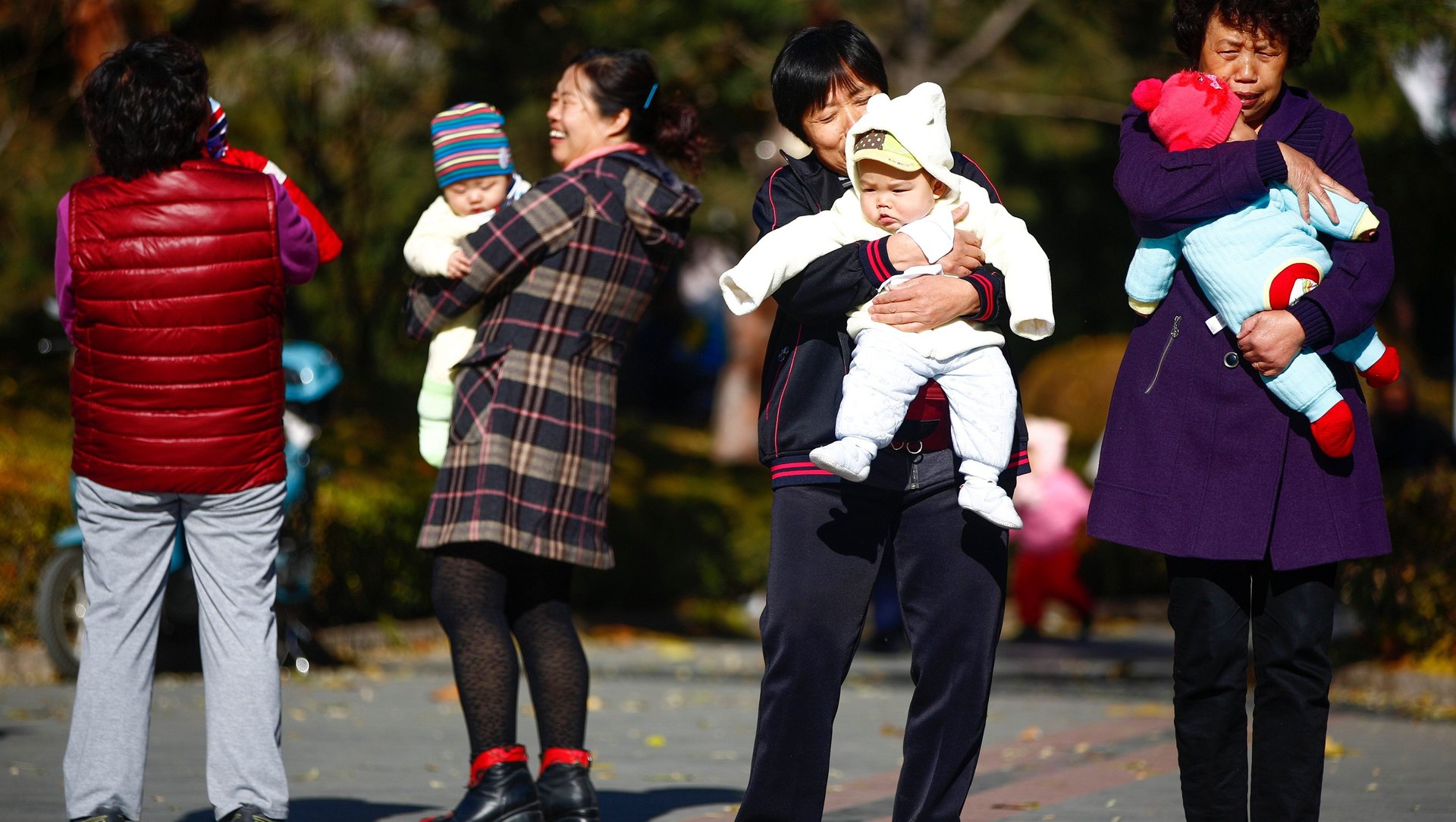China’s quest for more babies is showing signs of desperation
It’s been only three years since China abandoned its infamous one-child policy, in place since 1979. Now, the country of 1.3 billion that once used to fine people for having more than one child, is floating the idea of mandatory contributions to a fund to encourage people to have more children.


It’s been only three years since China abandoned its infamous one-child policy, in place since 1979. Now, the country of 1.3 billion that once used to fine people for having more than one child, is floating the idea of mandatory contributions to a fund to encourage people to have more children.
The suggestion came from an Aug. 14 commentary (link in Chinese) in Xinhua Daily, a Communist Party-affiliated newspaper in China’s eastern Jiangsu province. Its authors, both from a local university, suggested that all citizens under age 40 be required to pay into a fertility fund based on salary. Parents can get the money out when having a second child, the idea being to compensate for the loss of income faced by women who stop working during pregnancy and for a few years after. Those who don’t have a second child can only withdraw their money at retirement. Presently workers in China pay mandatory contributions towards retirement, health, and unemployment benefits.
The commentary quickly made waves on two of China’s most popular social media sites WeChat and Weibo, with people overwhelmingly expressing frustration at yet more interference from the state in people’s family lives. “[Before] you paid to have a kid. Now you are fined if you don’t have one. Are we citizens or slaves?” read a comment on Weibo that got over 3,000 likes. (Under the one child policy it was possible for families to have two children if they paid a penalty.)
Although the proposal is not an official document, people often read commentary from news outlets run by the authorities as signals of a policy shift. It also adds to a slew of other signs his year that suggest China is increasingly desperate for people to have more children.
Last week, China’s national post office unveiled a postage stamp that shows a pig family with three piglets, suggesting the country could lift all limits on the number of children by the end of this year. Also this month, China’s state newspaper People’s Daily published a piece headlined “Giving birth is not only a family issue but a national matter,” urging provinces to roll out policies to encourage people to have more babies. And in March, the central government shut down the commission charged with implementing birth-control policies, often associated with forced abortions and sterilization.
These moves are speaking to some of the deepest fears and challenges authorities face in China. The number of live births fell 3.5% from 2016 to 2017, when 17.23 million were born despite the looser policy. That’s worrying because China faces threats to its economic development and social stability from its one-child policy. The limit on children brought about a massive gender imbalance due to the preference for male heirs, as well as a shrinking labor force, which is not good for its national pension plan.
The number of working adults per retiree is set to go from around five to just 1.6 over the next two decades, journalist Mei Fong, author of One Child, told NPR in 2016. China’s total population is expected to begin declining in the next decade, and could drop to 600 million by the end of this century, about where it was in the 1950s.
But changing this momentum looks like an increasingly hard mission.
The population of women of reproductive age is declining in the country as a result of its own birth-control policy. And women in China are also delaying marriage and pregnancy to focus on working in a fiercely competitive environment that still puts the burden of taking care of the family on women once they are married. The purpose of the fund suggests that’s a norm that won’t change any time soon.